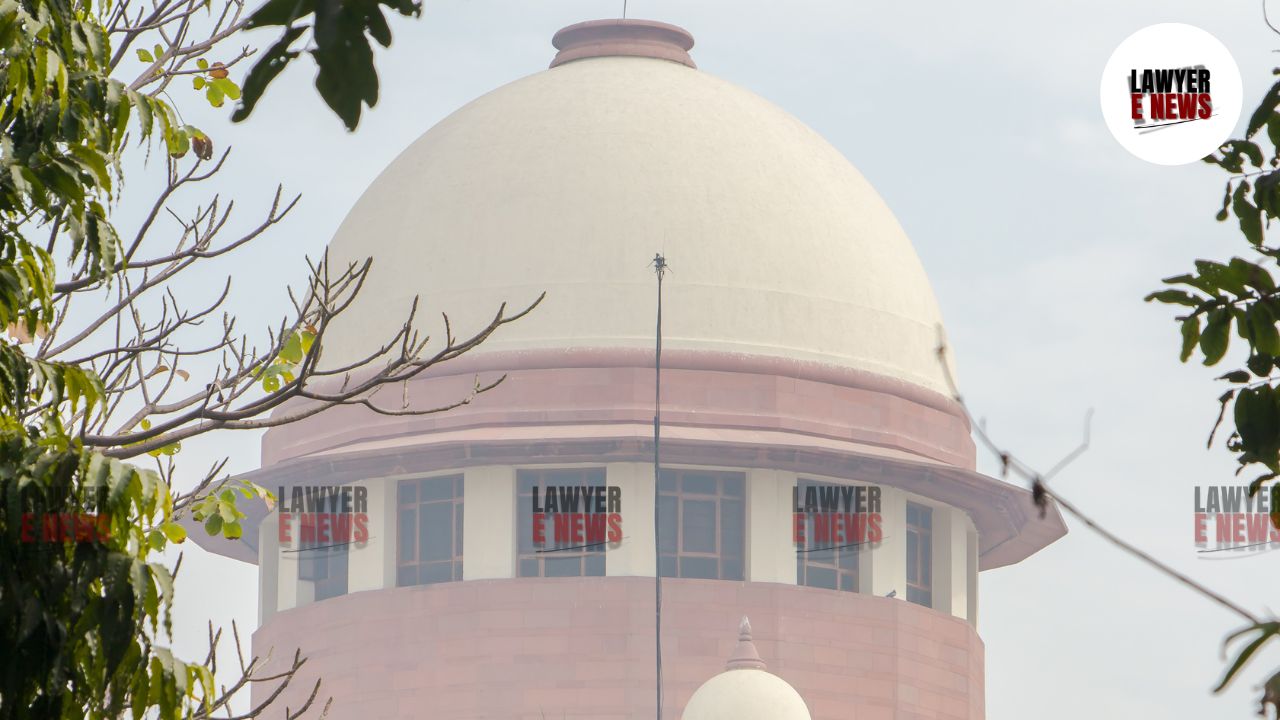-
by Admin
16 February 2026 5:45 AM



In a significant ruling on sentencing limits, the Supreme Court of India held that an appellate court cannot impose a punishment beyond what the law prescribes. The Court modified the sentence of a convict from 12 years rigorous imprisonment (RI) to 7 years RI, after finding that the High Court had wrongly sentenced him to a term exceeding the statutory maximum under Section 307 IPC (attempt to murder).
A bench of Justices B.R. Gavai and K. Vinod Chandran delivered the judgment in Ganesan v. State of Tamil Nadu, observing that when life imprisonment is not awarded under Section 307 IPC, the sentence cannot exceed 10 years as per law. The Court ruled that by imposing a 12-year sentence, the High Court had overstepped its jurisdiction, warranting correction.
"An appellate court, being a court of correction, must not create a fresh error while rectifying an earlier one. Sentences must strictly conform to statutory limits—nothing more, nothing less."
"Premeditated, But Not Fatal – Sentence Must Be Proportionate to the Crime"
The case stemmed from a violent attack by the appellant on his mother-in-law, whom he blamed for his wife leaving him due to his abusive behavior. According to the prosecution, the appellant arrived at his mother-in-law’s shop armed with a billhook and attacked her with the intent to kill. When his wife intervened to save her mother, she also sustained injuries.
The Trial Court convicted the appellant under Sections 307, 498A, 324, and 506(II) IPC and sentenced him to life imprisonment under Section 307 IPC. On appeal, the Madras High Court reduced the life sentence to 12 years RI, but the Supreme Court found this modification legally flawed.
"Section 307 IPC provides either life imprisonment or a maximum term of 10 years with fine. If life imprisonment is avoided, no court can impose a sentence exceeding 10 years. The High Court, in reducing life imprisonment to 12 years RI, acted beyond its jurisdiction," the Supreme Court ruled.
"Judicial Discipline in Sentencing is Paramount – No Court Can Act Beyond What the Law Allows"
The Supreme Court cited its past rulings in Jagat Bahadur v. State of Madhya Pradesh, (1966) 2 SCR 822 and Amit Rana @ Koka v. State of Haryana, 2024 SCC OnLine SC 1763, reiterating that appellate courts cannot impose a higher sentence than what is legally permissible.
"A bare reading of Section 307 IPC makes it clear—either life imprisonment or a maximum of 10 years. The High Court’s decision to impose 12 years was legally unsustainable and had to be corrected."
Taking into account the relationship between the parties and the injuries inflicted, the Supreme Court ruled that a 7-year sentence under Section 307 IPC was sufficient to meet the ends of justice.
"Sentencing must balance deterrence and proportionality. While the attack was brutal and premeditated, it was not fatal. A 7-year sentence reflects both the severity of the crime and the legal framework."
"Courts Must Stay Within the Law – Sentences Cannot Be Arbitrary"
The Supreme Court affirmed the appellant’s conviction under Sections 498A and 324 IPC, directing that all sentences run concurrently as ordered by the High Court. By modifying the sentence, the Court reinforced the principle that punishment must remain within statutory limits and sentencing cannot be arbitrary.
"Courts must ensure that while punishing the guilty, they do not themselves violate legal limits. Judicial discipline in sentencing is fundamental to the rule of law."
The ruling serves as a strong precedent on the limits of appellate courts in modifying sentences, ensuring that criminal justice remains both legally correct and fair.
Date of Decision: 07/02/2025
